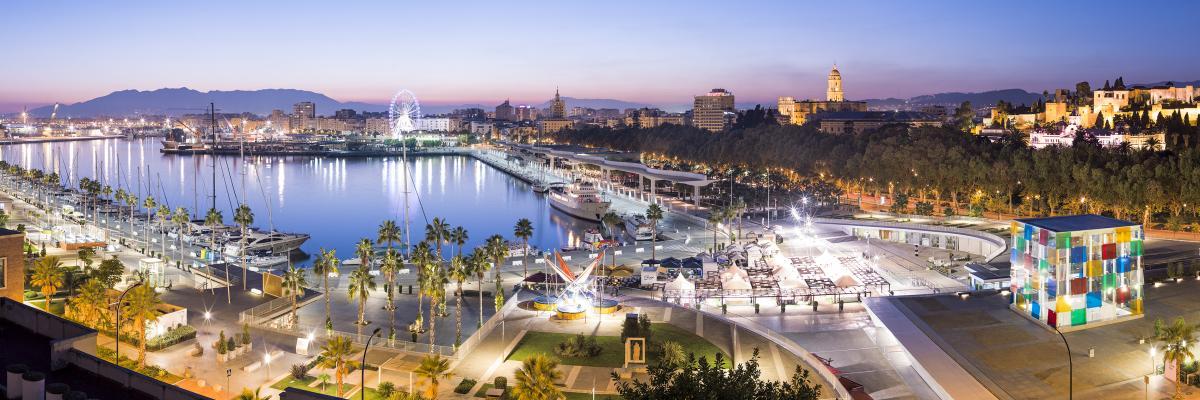
About
Population – 570,000
Malaga lies on the Costa del Sol of the Mediterranean, about 100 kilometres east of the Strait of Gibraltar and about 130 km north of the African coast.
The most important economic sectors of Málaga are tourism, construction and technology services.
The port of Malaga underwent profound renovations in recent years; it now hosts among other attractions the Centre Pompidou Málaga, opened in 2015, a branch of the Centre Georges Pompidou in Paris.
NBS Exemplar
Lagunillas is an old neighbourhood of Malaga very close to both the historic city centre and the university. Lagunillas has been largely overlooked in terms of development and has many derelict and vacant spaces often walled up and covered in (amazing) graffiti. There is strong resistance to gentrification of the area. Working with the community, the City of Malaga intends to reopen some of the derelict spaces to create a network of pocket parks and encouraging citizens to use the characteristic balconies of the area to create green corridors connecting the pocket parks with the larger green areas around the University and the city centre area.
Connecting Nature Partner – Promalaga (City of Málaga)
Contact: Isabel Pascual - ipvillamor@promalaga.es
Challenges
Diversify Malaga's economy (decrease the dependency on tourism and construction).
Vision
Urban life is beautiful, and people look forward to bringing their family up in Malaga.
Malaga develops into a business hub for nature-based solutions.
5 years’ time
Funding for nature-based solutions is provided through "Social finance ecosystem", a fund that supports new local businesses, community projects, social enterprises.
New parks and green playgrounds are developed in neighbourhoods that have previously been deprived of high-quality environments.
The city of Malaga adopts a new development strategy based on nature-based solutions, picking up many experiences and examples from other cities in the Connecting Nature project.
Different neighbourhoods have set up "Connecting Malaga" clubs and play a key role in understanding the needs and resources of local citizens.
10 years’ time
Biodiversity is now seen as integral part of urban planning.
Access to green spaces in the immediate vicinity of all residential neighbourhoods is guaranteed for all.
The university in Malaga now offers a new programme in Green Infrastructure, helping to train a new generation of entrepreneurs and planners.
A new rain water capture system drastically diminishes the need for freshwater and sewage treatments.
Climate-change adaptation measures allowed most houses along the beach to stay above water.
15 years’ time
Malaga is known world-wide for good practices in nature-based solutions, especially regarding successful business models.
The city hall creates a new position: "nature-based solution city maker", overseeing many aspects of social and economic development in close cooperation with communities.
Malaga has attracted numerous companies active in nature-based solutions, turning the region into a globally relevant hub in the NBS business.
Quality of life has drastically improved, employment in real jobs has been transformed.
